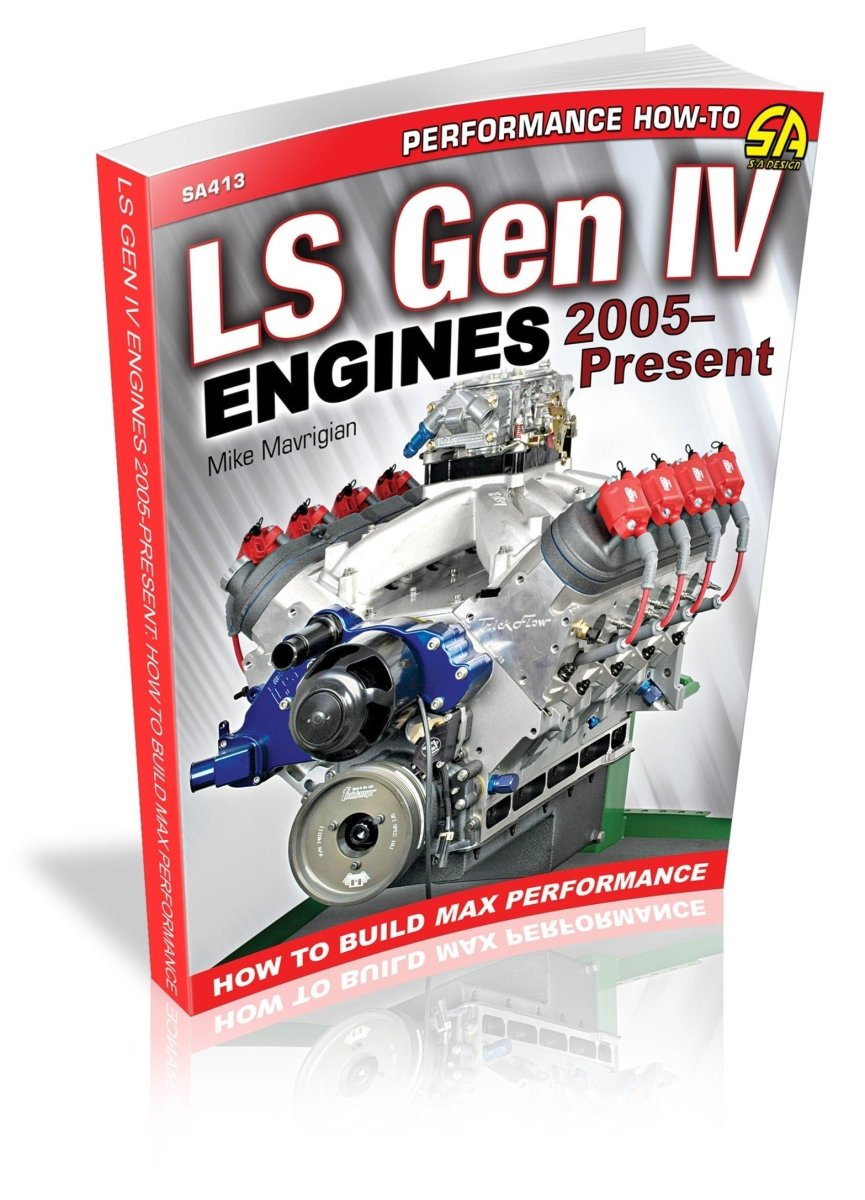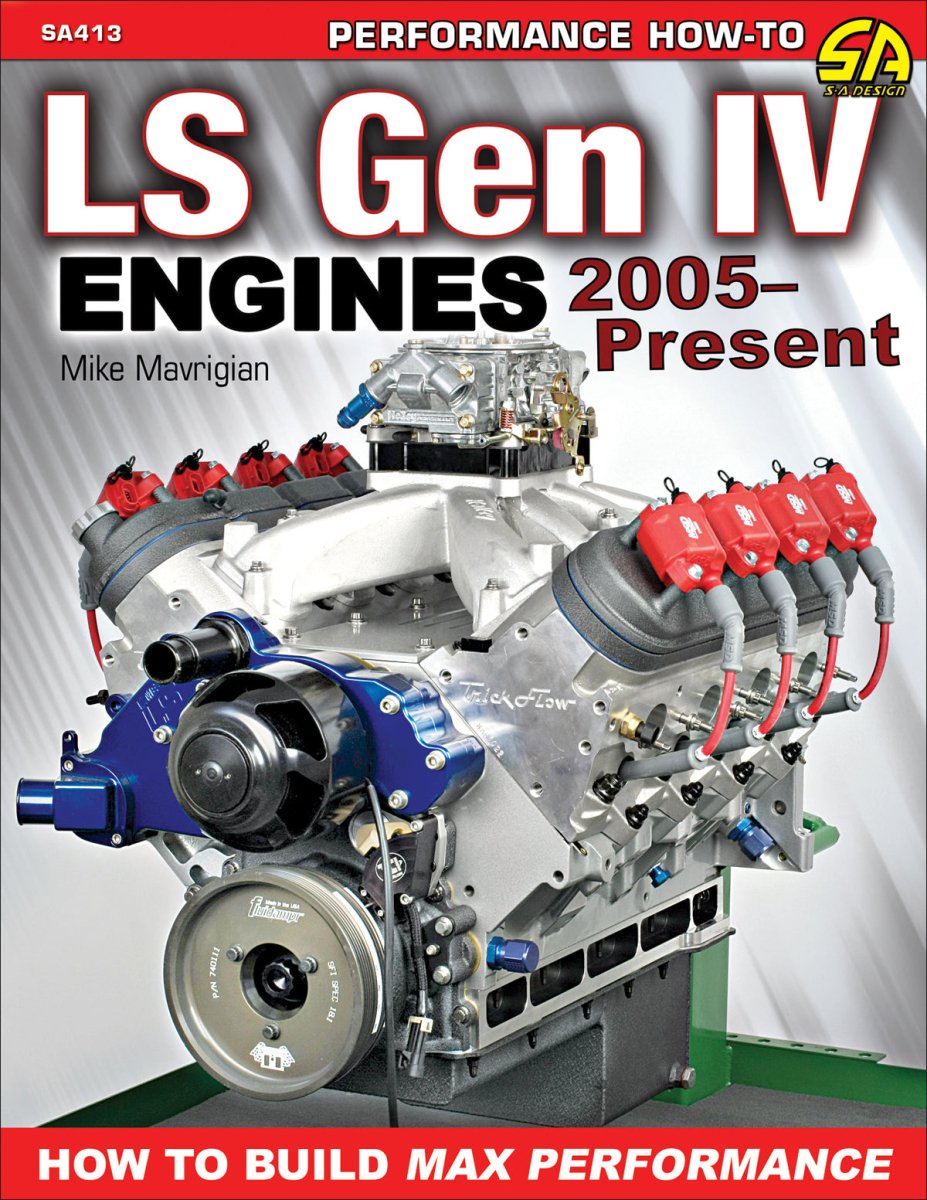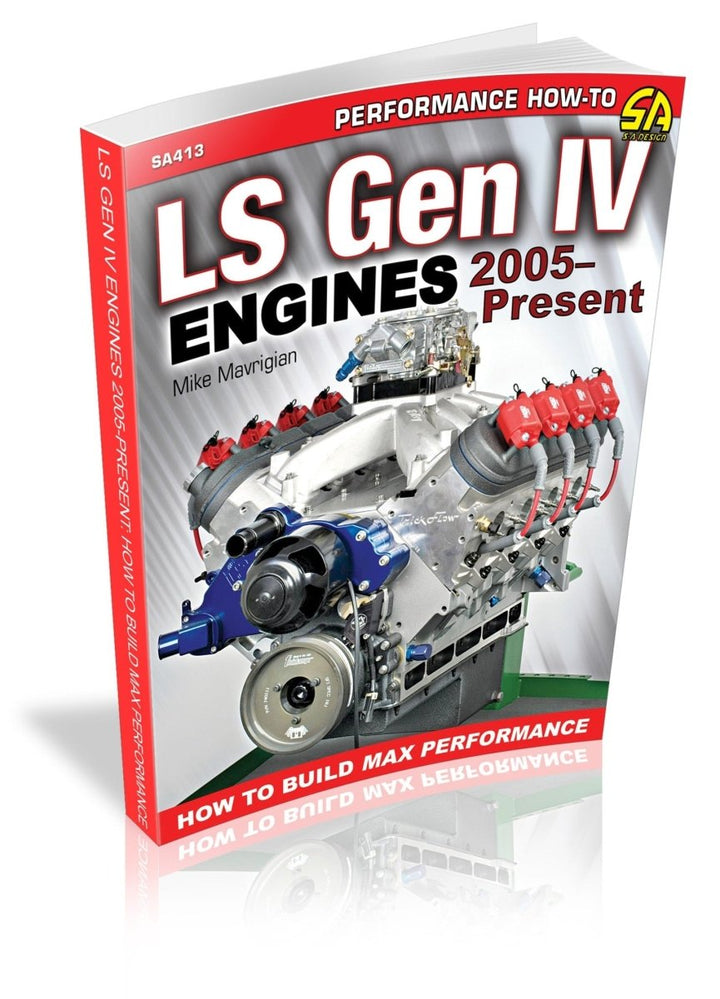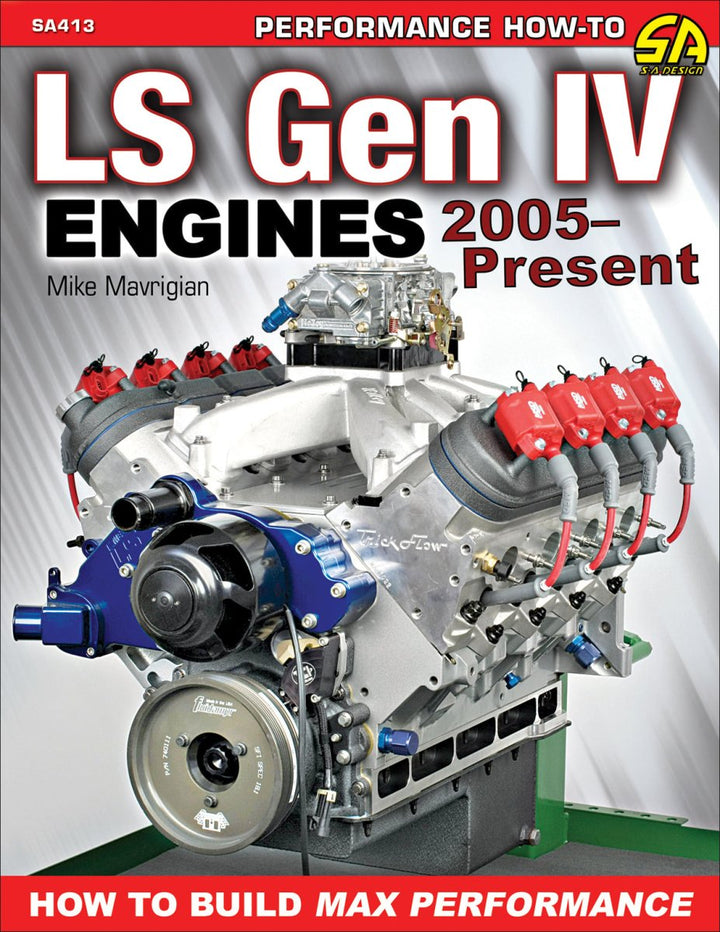Unlock the performance potential of your LS Gen IV engine with the best products and modification procedures for a variety of applications from engine-building and LS expert Mike Mavrigian.
To make more horsepower, more air flow and fuel into the engine is needed; therefore, how to select the industry-leading aftermarket heads and port the stock heads for superior performance are comprehensively covered in LS Gen IV Engines 2005 - Present: How to Build Max Performance. The cam controls all major timing events in the engine, so determining the best cam for your engine package and performance goals is revealed. But these are just a few aspects of high-performance Gen IV engine building. Installing nitrous oxide or supercharger systems and bolting on cold-air intakes, aftermarket ignition controls, headers, and exhaust system parts are all covered in detail. The foundation of any engine build is the block, and crucial guidance for modifying stock blocks and aftermarket block upgrade advice is provided. Crankshafts, pistons and rods, valvetrain, oiling systems, intakes and fuel injection, and cooling systems are all covered so you can build a complete high-performance package.
The GM LS Gen IV engine dominates the high-performance V-8 market and is the most popular powerplant for engine swap projects. In stock trim, the Gen IV engines produce class-leading horsepower. The Gen IV's rectangular-port heads flow far more air/fuel than the Gen III cathedral-port heads. However, with the right combination of modification procedures and performance parts, you can reach almost any performance target.
Muscle car owners, LS engine builders, and many enthusiasts have migrated to the Gen IV engine platform, so clear, concise, and informative content for transforming these stock engines into top performers for a variety of applications is essential. A massive amount of aftermarket parts is available and this provides guidance and instructions for extracting top-performance from these engines. If you’re searching for an authoritative source for the best components and modifications to create the ultimate high-performance packages, then you’ve found it.
Acknowledgments
Part 1: LS Gen IV
Chapter 1: LS Gen IV Engine Overview
LS2 Differences
Performance Gains
Retrofitting the LS
Chapter 2: Engine Blocks
Stock Blocks
Modifying the Stock Aluminum Block
Disabling Performance-Robbing Displacement on Demand
Main Caps
Aftermarket Blocks
Chapter 3: Crankshafts and Connecting Rods
Crankshaft Reluctor Wheel
Crank Snout Length
Connecting Rods
Rod Bearings
Crank Stroke and Rod Length
Aftermarket Connecting Rods
High-Performance Crankshafts
Chapter 4: LS7, LS3, and LS9 Cylinder Heads
LS7
LS3
L92
LS9
Cylinder Head Interchangeability
Water Temp Holes
Rocker Arm Pedestal Rails
Aftermarket Performance Heads
Selecting a Cylinder Head
Chapter 5: Pistons
Piston Compression Height
Bore Size, Dome, and Compression Ratio
Skirt-to-Wall Clearance
Piston and Rod Orientation
Skirts and Major/Minor Thrust
Offset Pin
Piston Coatings
Chapter 6: Camshafts and Lifters
Camshaft Terminology
Factory Camshafts
Active Fuel Management (AFM)
Intake and Exhaust Difference
Camshaft Firing Order
Hydraulic or Solid
Cam Gears
Lifters and Lifter Guides
Chapter 7: Rocker Arms
Stock LS Rocker Arm Trunnion Upgrades
Tool Note
Aftermarket Rockers
High-Performance Rocker Arms
Chapter 8: Oiling Systems
Rear Main Seal
High-Pressure/Volume Upgrade
Dry Sump
Oil Pressure Sensor
Chapter 9: EFI and Intake Manifolds
Intake Manifolds
Throttle Body Injection
Fuel Injector Size
Low Impedance versus High Impedance
Part II: Two High-Performance LS Builds
Chapter 10: Dual-Carb LS 408
Block
Camshaft
Crankshaft
Connecting Rods
Pistons
Timing Set
Oil Pump
Cylinder Heads
Lifters
Pushrods
Water Pump
Crank Damper
Intake Manifold
Carburetors
Ignition
Our Dyno Results
Chapter 11: Dart LS Next Build
The LS Next Block
Machining the LS Next Block
Crankshaft Balancing
Pistons
Connecting Rods
Camshaft
Timing Set
Piston/Rod Assembly
Oil Pump
Oil Pan
Lifters
Crank Damper
Cylinder Head Installation
Rockers
Pushrods
Intake System
Ignition Coils
The LS Next Dyno Session
Chapter 12: Assembly Procedures
Crankshaft Installation
Cylinder Head Installation
OEM Lifter Buckets
Rear Oil Diverter
Rear Main Seal Installation
Front Cover
Valley Plate
Crank Damper/Pulley Installation
Timing Chain Damper
Connecting Rod Bolts
Changing Camshafts
Valve Cover Swap
Carb Setup on LS
Custom Cylinder Head Steam Plumbing
Hose Lengths
Appendix
Source Guide





